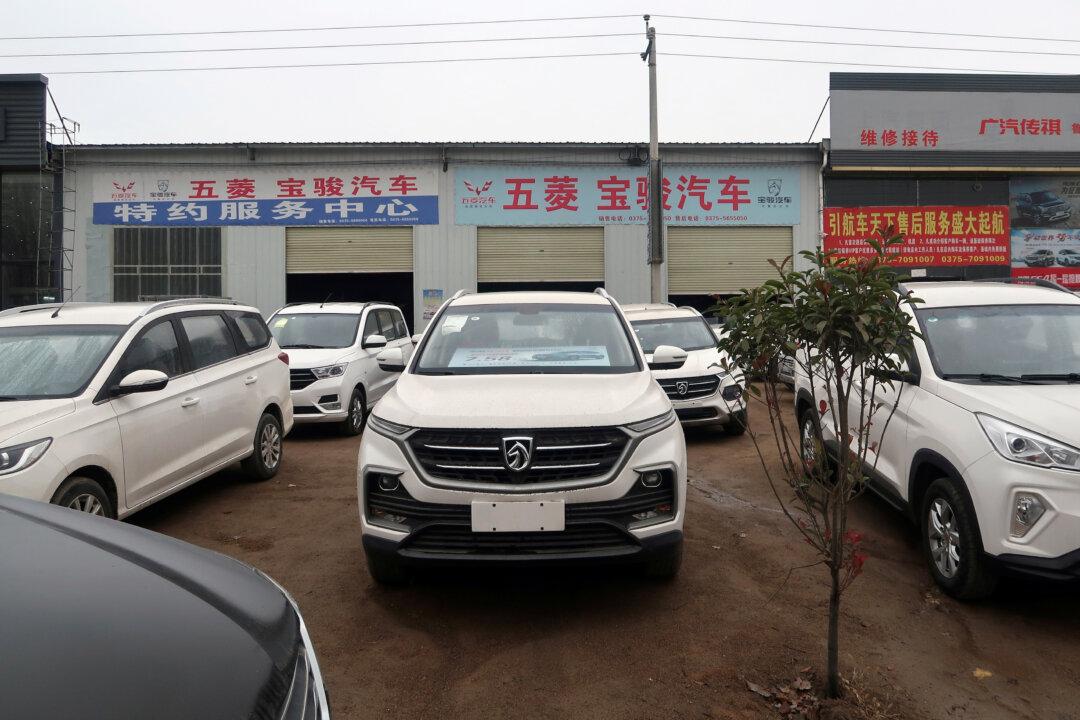BEIJING— Vehicles sales in China, the world’s largest auto market, fell 14.6 percent in April from the same month a year earlier, the country’s biggest auto industry association said on May 13, marking the 10th consecutive month of decline.
Sales fell to 1.98 million vehicles, said the China Association of Automobile Manufacturers (CAAM).





